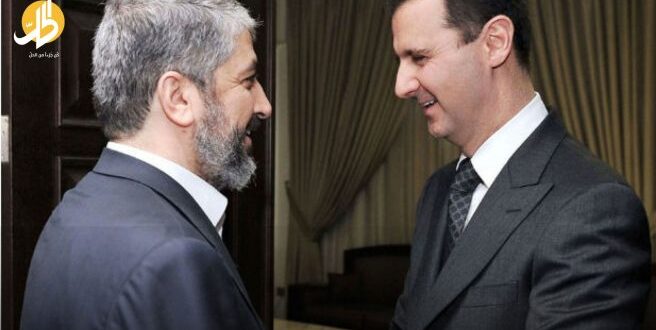The “new relationship” between Hamas and Damascus will be built on punctual interests, according to al-Hal Net.
An entire decade of disconnection and tension between the Palestinian Hamas movement and Bashar al-Assad could be replaced by a new contract establishing a post-2011 phase. The matter, however, remains subject to developments between the two sides and official confirmation by Hamas as well as the clarification of Damascus’ position.
On Tuesday, Britain’s Reuters news agency revealed in a report that the movement has decided to resume relations with Damascus.
The two sides held “high-level meetings to achieve this goal,” the agency quoted a Hamas official as saying. Hamas has not officially denied it, nor has the Syrian government.
The return of relations, if formally conducted, may be Iranian-motivated, especially since Tehran is considered the biggest supporter of Hamas. Many observers see the Palestinian movement as an arm of Iran in Palestine, similar to Hezbollah in Lebanon.
Tehran and Moscow
In his interview with al-Hal Net, the Palestinian writer and political analyst Imad Abu al-Rous links Hamas’ interest in rapprochement with Damascus to the Palestinian movement’s strong relationship with Tehran and Moscow have power in Syria.
“The movement can achieve what it wants from its interests through Iran and Russia,” Abu al-Rous asserts. At the same time, he does not rule out that Tehran or Moscow will ask Hamas to take steps to restore its relationship with Assad.
The Palestinian political analyst said that restoring relations with Damascus was previously raised at the Hamas table, and serious discussions took place through Tehran and Lebanon’s Hezbollah.
Abu al-Rous ruled out the short-term return of Hamas-Damascus relations as they were before 2011. He says the relationship will be governed only by interests, not alliance.
 Eurasia Press & News
Eurasia Press & News




